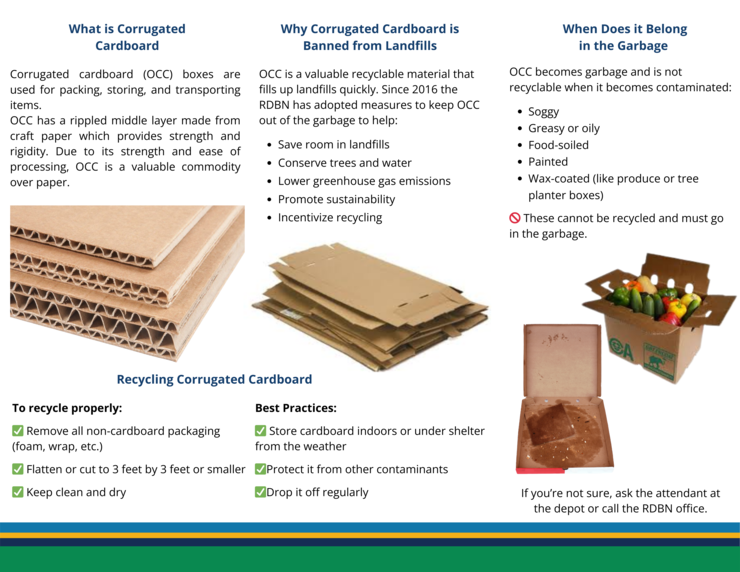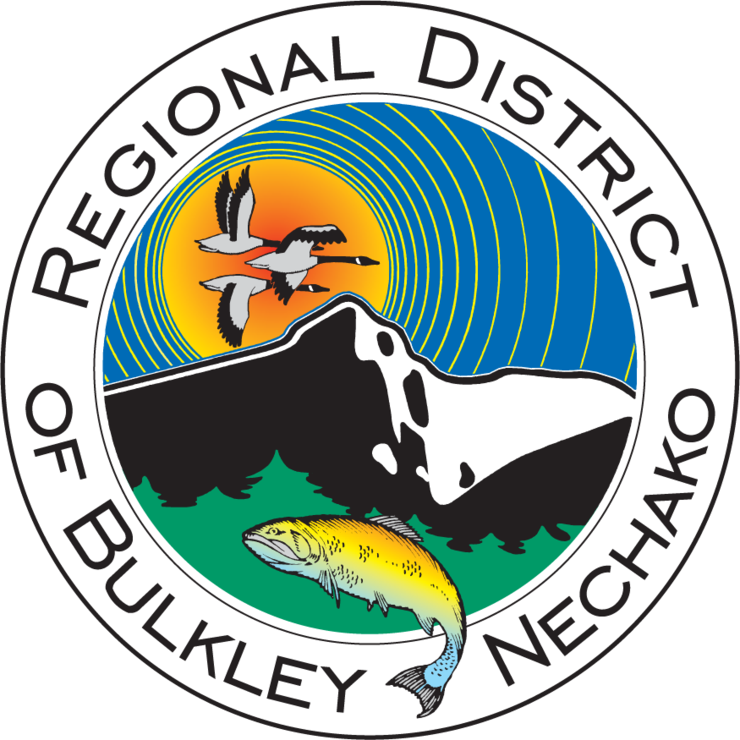
Frequently Asked Questions about Corrugated Cardboard:

Q: Why is OCC banned from the landfill?
A: OCC is a valuable, easily recyclable material. Banning it from the landfill helps reduce waste, save space, and support sustainable practices.
Q: When is OCC not recycleable?
A: OCC that is wet, greasy, food-soiled, or waxed (like produce or tree planter boxes) must go in the garbage.
Q: What happens if OCC is found in the garbage?
A: Loads may be flagged and may result in contamination fees or rejection at disposal sites.
Q: What’s the problem with putting OCC in the landfill?
A: When OCC breaks down in a landfill, it creates methane, a potent greenhouse gas that contributes to climate change. OCC also takes up landfill space and is easily recyclable. Keeping it out of the landfill helps protect the environment and extends the life of our landfill.
Q: Who does this ban apply to?
A: The ban applies to all waste generators: residential, commercial, and industrial. However, industrial and commercial businesses must source alternative locations to recycle their OCC.
Q: Why can only residential generated waste be recycled at RDBN recycling facilities?
A: The recycling facilities located at the RDBN Transfer Stations are for use by residential waste generators. This decision was made through RDBN Board Resolution in 2015, prior to the ban in 2016.

